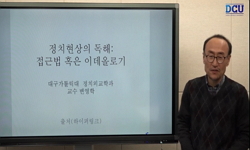Purpose: This paper examines whether foreign aid influences public sector efficiency in policy areas of administration, education, and stability. Research design, data and methodology: The study uses panel data of 77 aid recipient developing countrie...
http://chineseinput.net/에서 pinyin(병음)방식으로 중국어를 변환할 수 있습니다.
변환된 중국어를 복사하여 사용하시면 됩니다.
- 中文 을 입력하시려면 zhongwen을 입력하시고 space를누르시면됩니다.
- 北京 을 입력하시려면 beijing을 입력하시고 space를 누르시면 됩니다.
https://www.riss.kr/link?id=A108636784
- 저자
- 발행기관
- 학술지명
- 권호사항
-
발행연도
2023
-
작성언어
-
- 주제어
-
KDC
325
-
등재정보
KCI등재
-
자료형태
학술저널
-
수록면
25-35(11쪽)
- DOI식별코드
- 제공처
-
0
상세조회 -
0
다운로드
부가정보
다국어 초록 (Multilingual Abstract)
Research design, data and methodology: The study uses panel data of 77 aid recipient developing countries over the period 2000-2020 and employs various panel data techniques to estimate.
Results: We found that a percentage change in foreign aid increases administrative efficiency by 0.02 to 0.04 on average ceteris paribus in the short run. On the other hand, a percentage increase in foreign aid decreases education efficiency by 0.005 to 0.006 on average. While the impact of foreign aid on the policy area of stability is insignificant.
Conclusions: The empirical results of this study have important implications for both donors and aid recipient countries. It suggests that to get positive influence from foreign aid, in the area of education and stability, the recipient countries need to increase accessibility of secondary schools with quality education especially; technical and vocational. Also, the donor should provide a minimum threshold amount of foreign aid to developing countries for reforming the institutions' capacity building.
Purpose: This paper examines whether foreign aid influences public sector efficiency in policy areas of administration, education, and stability.
Research design, data and methodology: The study uses panel data of 77 aid recipient developing countries over the period 2000-2020 and employs various panel data techniques to estimate.
Results: We found that a percentage change in foreign aid increases administrative efficiency by 0.02 to 0.04 on average ceteris paribus in the short run. On the other hand, a percentage increase in foreign aid decreases education efficiency by 0.005 to 0.006 on average. While the impact of foreign aid on the policy area of stability is insignificant.
Conclusions: The empirical results of this study have important implications for both donors and aid recipient countries. It suggests that to get positive influence from foreign aid, in the area of education and stability, the recipient countries need to increase accessibility of secondary schools with quality education especially; technical and vocational. Also, the donor should provide a minimum threshold amount of foreign aid to developing countries for reforming the institutions' capacity building.
목차 (Table of Contents)
- 1. Introduction
- 2. Literature Review
- 3. Empirical Specification and Variables Description
- 4. Empirical Result
- 5. Policy Implication
- 1. Introduction
- 2. Literature Review
- 3. Empirical Specification and Variables Description
- 4. Empirical Result
- 5. Policy Implication
- 6. Conclusion
- References
동일학술지(권/호) 다른 논문
-
- 국제융합경영학회
- Bir Bahadur TRIPURA(Bir Bahadur TRIPURA )
- 2023
- KCI등재
-
- 국제융합경영학회
- Byoung-Jo HWANG(Byoung-Jo HWANG)
- 2023
- KCI등재
-
- 국제융합경영학회
- Yooncheong CHO(Yooncheong CHO)
- 2023
- KCI등재
-
- 국제융합경영학회
- So Im PARK(So Im PARK)
- 2023
- KCI등재





 ScienceON
ScienceON 스콜라
스콜라



